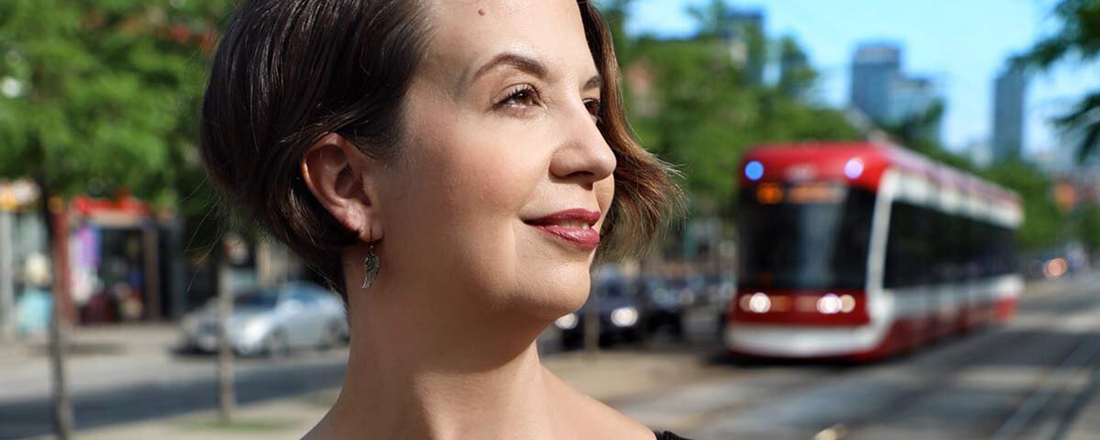Get updates from The Developer straight to your inbox Yes, please!
Leslie Kern: “The lockdowns have brought a whole new lens on our cities”
The crisis has revealed that our housing is not fit for purpose, our social safety-nets are full of holes, and care work is in crisis, says author and academic Leslie Kern. What is this ’economy’ we are protecting, and why is its foundation so fragile?

“We have this beast called the economy… this rarefied concept that we just throw out there, and we’ve forgotten everything that underpins it,” says author and academic Leslie Kern.
“What is this economy that we are so hung up on saving, and what are we willing to risk or sacrifice in the name of this thing, this ‘economy’?”
Kern’s book Feminist City came out over a year ago. While it was written long before the pandemic, she admits the Covid health crisis and its lockdowns have drawn a whole new audience to Kern’s provocations for a more equitable city.
In her talk at the Festival of Place, now available as a podcast, Kern illuminates the “shaky foundations” on which our economy rests.
Listen to Leslie Kern’s talk
“The crisis has revealed that our social safety nets are full of holes and that care work is in crisis,” Kern says. “What has been hidden has come to the forefront.”
The economy relies on free or poorly-paid care work, Kern says, a sector that has been deliberately devalued and hidden away in our cities and homes.
“We heavily rely on unpaid and underpaid work to keep society functioning, and much of this work is done by women, lower income people, racial minorities, recent immigrants… It’s stigmatised, it’s devalued and kept out of sight and out of mind.
“Care work has been an afterthought in design,” says Kern. “It’s not reflected in the city infrastructure.”
“What is this economy that we are so hung up on saving, and what are we willing to risk or sacrifice in the name of this thing, this ‘economy’?”
By pointing out how care work is poorly served financially, socially and in physical environments, such as the architecture of cities and transportation networks,
“The struggle to make the necessities of care, whether that’s feeding people, getting them to healthcare, looking after children… we haven’t created a robust infrastructure for care. It’s very much an afterthought or tucked away and hidden in the space of the home
Which brings Kern to another revelation – how our homes fail us.
“Reimagining the home and the family is critical,” argues Kern. “We know that the home is not a safe space. This traditional nuclear family structure is under more pressure than ever before, it’s just not particularly effective for many people to live the life they want to live. How can we as mediators of cities support other notions of what home and the family look like?”
“How can we as mediators of cities support other notions of what home and the family look like?”
“How can we build care into cities as a forethought, not an afterthought. What if we put care work at the top of the list of priorities, what would that do to the types of spaces we imagine? The types of networks?
“That is about valuing care-work as the basis of the economy. The economy doesn’t exist without a solid foundation of care work, and existing as it does on unpaid or poorly paid labour is a shaky foundation.”
Kern says her book is not a blueprint for a feminist utopia, but lays out a set of values around which we could shape our city with “a vision of justice, equity, sustainability and care” at their core.
“What does this all mean for placemaking? We know that underneath what we imagine lies a set of beliefs, norms, biases and assumptions. We can’t empty our mind of these things, but there’s a process we need to go through to question those values and norms
“I’m not saying the economy doesn’t matter, but I think as critical thinkers, we want to raise questions about what kind of economy we are looking at in our cities going forward and ask ourselves what do we want to see?”
Support The Developer on Patreon
Our journalism has always been free-to-air.
If you value what we publish, be our patron from £3 per month
Sign up to our newsletter
Get updates from The Developer straight to your inbox
Thanks to our organisation members
Become a member
© Festival of Place - Tweak Ltd., 124 City Road, London, EC1V 2NX. Tel: 020 3326 7238
